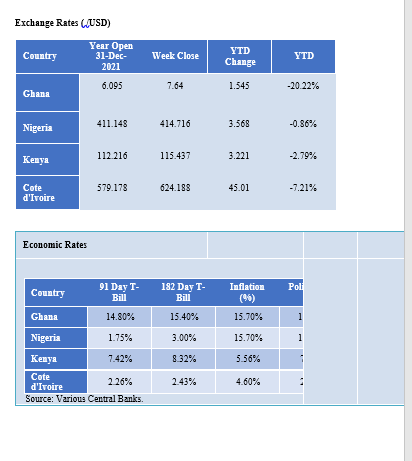The United Nations Climate Change Conference will come on in November 2022, six months from now in Egypt, and this marks a great opportunity for Africa to secure a good deal collectively. The decisions taken at Glasgow’s COP26, despite its many successes, failed to deliver on many of the expectations for the African continent. The continent was essentially underrepresented in terms of attendance and the region’s climate priorities. Thus with COP27 happening this year, in Egypt, this should undoubtedly bring in the needed positive change and deliver on many critical issues for Africa.
Africa currently faces the brunt of climate impact even though the continent only contributes 4% to global emissions. The effects of global climate change has a negative impact on Africa’s “long-term sustainable development and poses an immediate threat to its people, creating conflict and destroying lives and livelihoods from the shores of Senegal to the savannah of Kenya” (un.org). For this reason, now more than ever, it has become important for African countries to work together to achieve even bigger results than in COP26 with the idea of creating space for African innovation and development.
Emphasizing the need for African collaboration towards COP27, the Mo Ibrahim Foundation has released a report titled ‘The Road to COP27: Making Africa’s Case in the Climate Debate’ which provides the needed facts and figures that highlight Africa’s peculiar and unique position within the global climate change discourse. The foundation’s report also guides the three-day conference, hosted by the foundation between 25-27th May 2022, which is intended to bring stakeholders together to deliberate on how Africa can ‘get ahead of the game’ before COP27 in six months.
The report gives a comprehensive breakdown of the challenges and prospects of the climate change crisis from an African viewpoint. According to Mo Ibrahim, Founder and Chair of the Mo Ibrahim Foundation: “As the least industrialized continent, Africa has contributed the least to the global climate crisis, yet it is suffering the most from its consequences. Thanks to its immense ecological and mineral resources, Africa has the potential to be at the heart of a sustainable future for both the continent and the world. As we now head towards COP27, hosted on the continent, it is vital that Africa’s unique position is better understood and taken [into] account. Leaving Africa out of the equation not only hinders efficient climate action, but it also threatens global development and security prospects.”
The report, ‘The Road to COP27: Making Africa’s Case in the Climate Debate’, outlines several key findings. It rehashes that Africa accounts for 3.3% of total global carbon emissions since 1960 but the continent is the least-responsible world region for climate change. In 2020, the whole of Africa’s per capita carbon emissions was ten times lower than North America’s. Yet, again, Africa is the hardest-hit when it comes to the impact of climate change. Between 2010 – 2022, 172.3 million people across the continent have been affected by drought and at least 43 million people have experienced the effects of heavy floods.
Further, the 10 most climate vulnerable countries around the world are found in Africa and they host up to 20.1% of the continent’s overall population. Coupled with that, the effects of climate change transcend the barriers of climate to worsen other development challenges existing on the continent. The report predicts that if nothing is done, up to 39.7 million additional people in sub-Saharan Africa could find themselves in extreme poverty by the end of this decade (2030). Further, global Climate change is predicted to push an extra 78 million people into chronic hunger by 2050 with half of them benign in sub-Saharan Africa.
The figures and facts are telling, without deliberate and intentional climate action the situation could extremely worsen for our continent. Thus leading up to COP27, we are of the opinion that countries within Africa must take charge of their own advocacy and policy efforts. The effort needs to come from within and the continent must take advantage of the global momentum on climate action. The advocacy towards COP27 should build on results from COP26. These are increased climate funding ($100 billion pledge) and the commitment to double adaptation funding, developing comprehensible rules on carbon markets and increased awareness and attention to climate-caused loss and damage.










